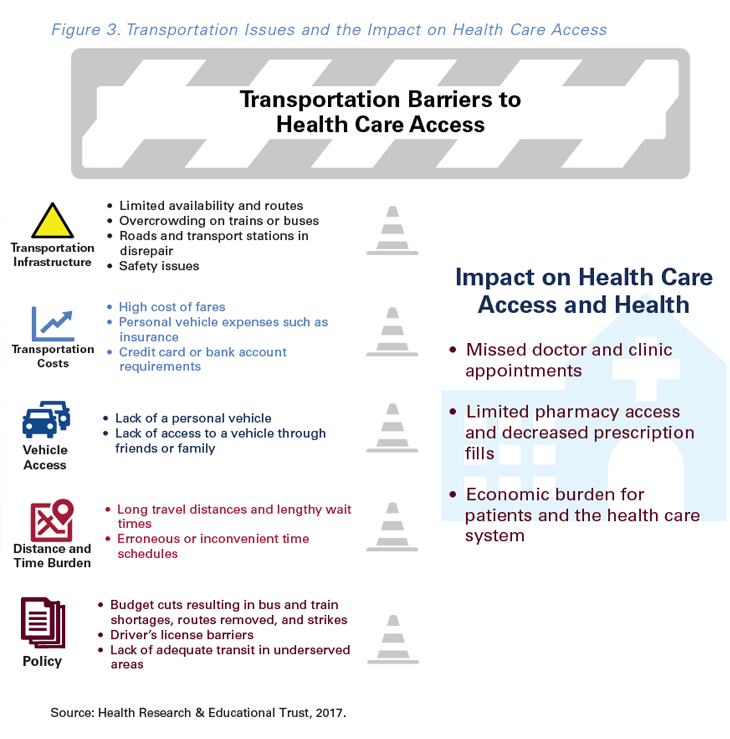Did you know that a person’s health and wellness is directly linked to their social and economic environment? According to research conducted by the University of Wisconsin Population Health Institute, just 20% percent of health can be attributed to medical care. While 40% is directly linked to social and economic factors – like housing status, access to healthy food, access to education and access to non emergency medical transportation (NEMT).
Social determinants of health
People who experience regular housing instability, food insecurity or other barriers are vulnerable to health-related issues, increased health care utilization and significant health care costs. By tackling these social determinants of health, there can be significant and positive impacts to a person’s wellness, including:
- longer life expectancy
- healthier choices and behaviors
- overall health
Medical Transportation & health
Another important social determinant of health is access to transportation. Transportation is an economic and social factor that impacts people’s daily lives. Transportation barriers can affect a person’s access to health care services and these barriers may result in:
- missed or delayed doctor and clinic appointments
- limited pharmacy access and decreased prescription refills
- economic burden for patients and the health care system
- overall poorer health outcomes
Great news for NEMT providers
Recent changes to non-emergency medical transportation (NEMT) requirements via administrative action, have rendered NEMT a mandatory benefit. This is great news, as states are now required to provide NEMT services to Medicaid recipients, and use the most appropriate form of transportation. The scope of benefit varies by state, but generally covers a broad range of NEMT services.
As transportation is interrelated with other social determinants of health such as poverty, social isolation, access to education and racial discrimination, this administrative action has put greater emphasis on transportation as a vehicle for wellness.
Hospitals and health systems step up
Given the important link between transportation and health, hospitals and health systems are now taking a greater interest in addressing transportation issues, improving patient access, and helping design and support better transportation options. The growing recognition that improving patient transportation access will help improve health outcomes and lower health costs, is influencing people’s holistic lifestyle options too. Simply, barriers to transportation and lack of transportation options can interfere with people’s ability to enjoy a healthier, higher quality of life. People depend on safe and easy transportation to travel to health care services as well as places of employment, childcare, places of worship, parks and recreation, social gatherings and more. This means better systems and medical software technology is needed to provide better access.
Big step forward
It’s huge step in the right direction that hospitals and health systems are starting to recognize the positive impacts of social, economic, and environmental factors on overall health. Transportation as just one of the many social determinants of health, can help drive better care and healthy behaviors, which ultimately improves overall health outcomes.

